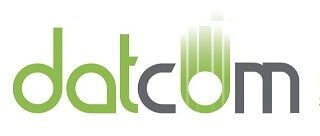In this edition of the DatCom Business Briefing, we discuss the effects of “alert fatigue” as it relates to cybersecurity.
What is “Alert Fatigue?”
Modern workers are prone to receive numerous notifications across their devices related to work, their interests, and public safety. And they respond differently.
Some people manage their notifications smartly and limit unnecessary interruptions. Others feel confident that they can deal with just about any kind of alert on the fly.

With the increasing number of cyber threats, people and organizations need to be vigilant and take necessary steps to ensure their safety online. However, with the constant stream of alerts, warnings, and notifications, it’s easy to fall victim to “alert fatigue.”
Alert fatigue is a phenomenon where an individual becomes desensitized to alerts and warnings due to their excessive frequency. This can lead to a situation where they ignore important alerts or neglect to give them due attention, resulting in a security breach. This is a significant concern in the field of cybersecurity, where timely and effective action can be the difference between a safe and compromised system.
One of the primary causes of alert fatigue is the excessive number of alerts generated by security tools. To provide comprehensive coverage, security tools are often configured to generate alerts for every possible security event. However, this can result in an overwhelming number of alerts, many of which are not relevant or actionable.

According to Forbes, research suggests that trained cybersecurity analysts are less productive nowadays because they experience so many security alerts and notifications, leading to alert fatigue and a fear of missing security incidents.
How to Comat “Alert Fatigue.”
To combat alert fatigue, organizations need to take a more strategic approach to security alerting. This involves defining clear criteria for generating relevant alerts when someone needs to act. This can be achieved with intelligent security tools that leverage machine learning and other advanced technologies to generate alerts only when necessary.
Another effective approach is to prioritize alerts based on their severity and potential impact. This allows organizations to focus their attention on the most critical alerts, ensuring that they receive the attention they deserve. This can be achieved by assigning a risk score to each alert, which considers factors such as the severity of the threat, the potential impact on the system, and the likelihood of the threat occurring.

Finally, it’s essential to ensure that the right people are receiving alerts. Sending alerts to everyone in the organization can lead to a flood of alerts that are not relevant to most people. Instead, alerts should be sent only to individuals who have the knowledge and authority to take appropriate action.
Alert fatigue is a significant concern in the field of cybersecurity. However, by taking a strategic approach to security alerts and leveraging intelligent security tools, organizations can minimize irrelevant alerts and ensure that critical alerts receive the attention they deserve. By doing so, organizations can enhance their cybersecurity posture and protect themselves from the ever-increasing threat of cyber-attacks.

How DatCom Guardian Mitigates the effects of “alert fatigue.”
At DatCom, we understand the value of mitigating interruptions to your staff. That’s why our Guardian cyber-security service is designed to prevent, detect, and protect business technology without interrupting business processes.
Most small and medium organizations don’t have the resources to field an effective cyber-security team. So, we leverage a holistic, patent-pending tool to provide extended cybersecurity. By using effective automation and human expertise, we prevent your teams from ever having to deal with the effects of a flurry of security alerts.
In a world full of notifications and alerts and increasing cybersecurity threats, productive business uptime is a must.


